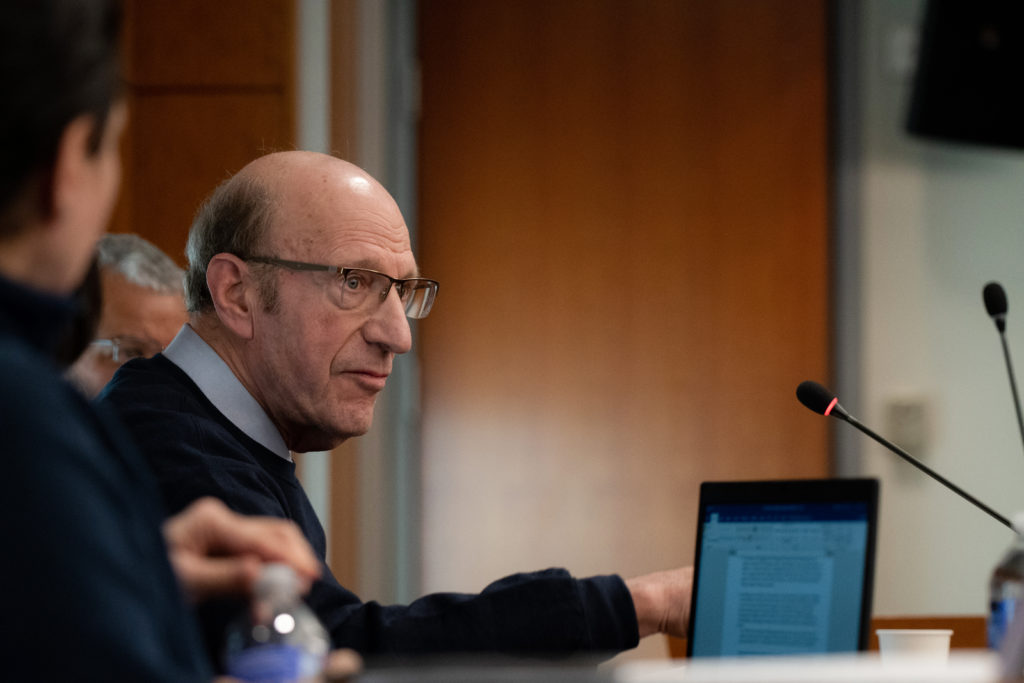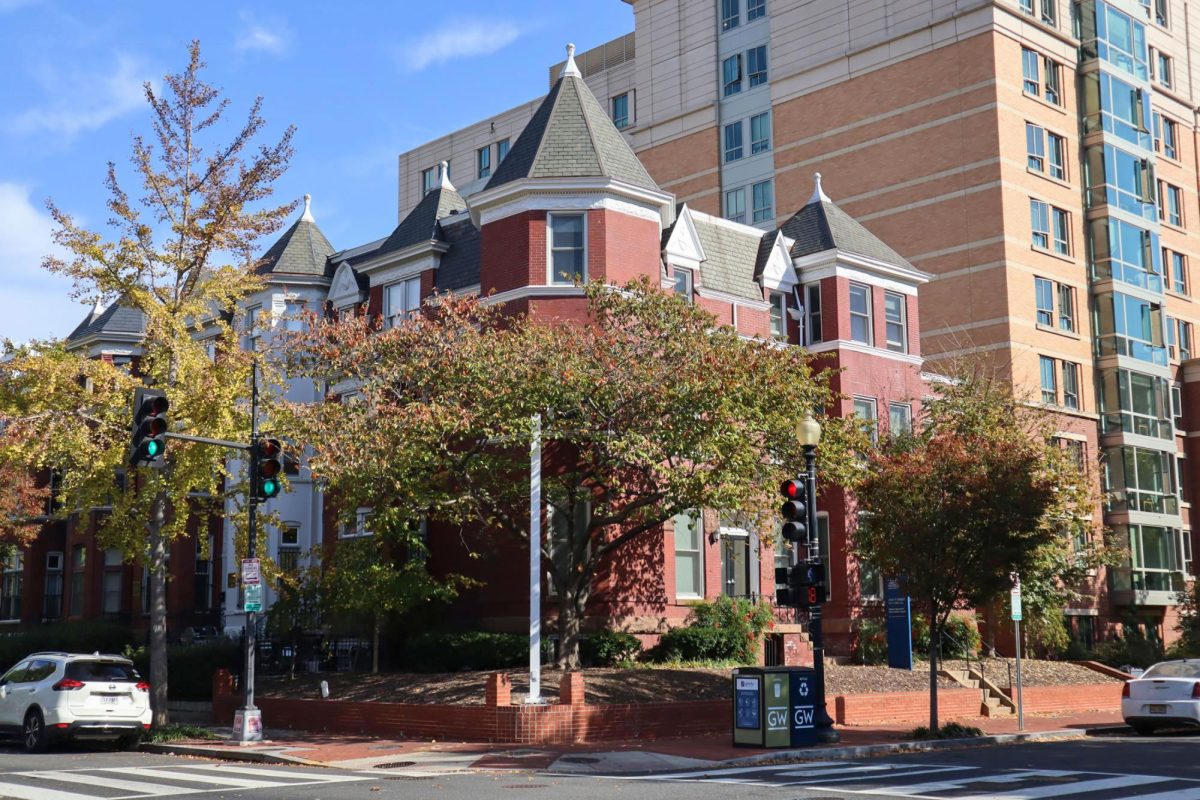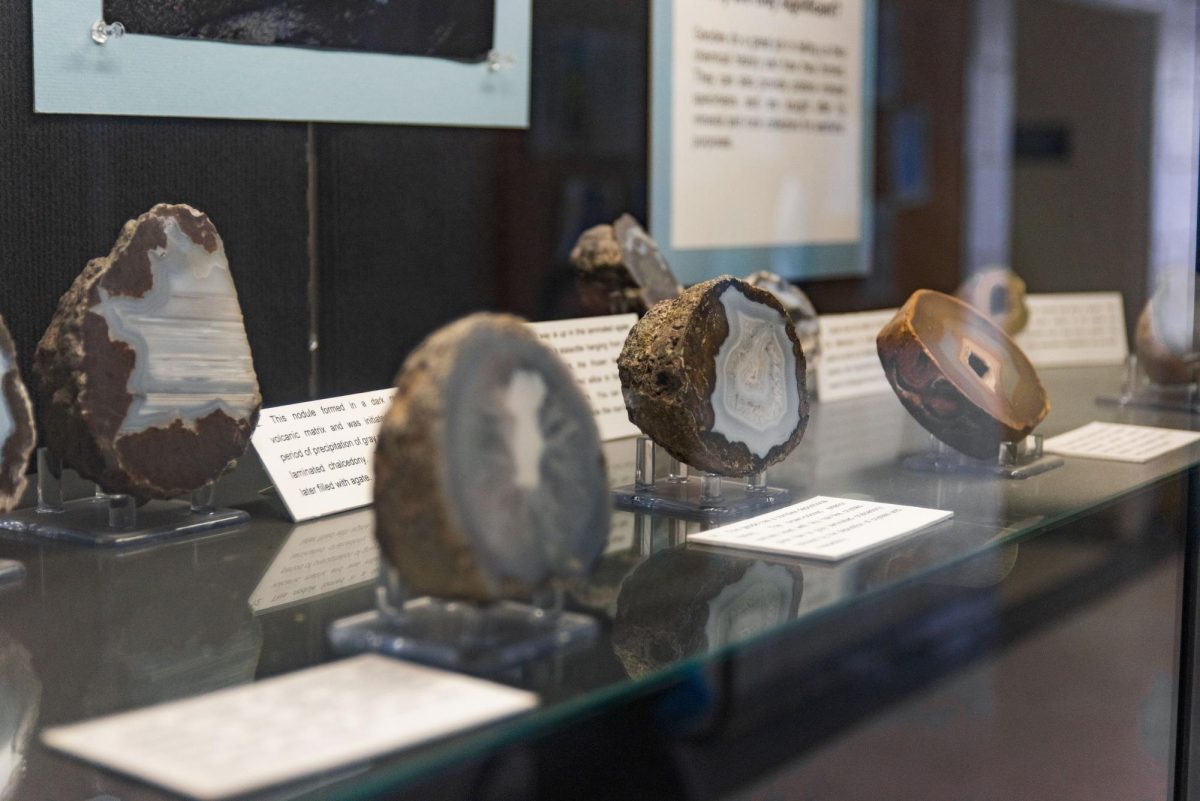Faculty leaders said Arthur Wilson will bring his passion for shared governance and lengthy experience to the table as the next chair of the Faculty Senate’s Executive Committee.
Wilson, an associate professor of finance, was unanimously elected by the senate earlier this month to serve as the next chair of the committee – a group of faculty senators responsible for setting the body’s agenda and overseeing the rollout of senate initiatives. Senators said they look forward to working with Wilson and are grateful for outgoing chair Sylvia Marotta-Walters’ leadership over the past three years.
Wilson has served in the senate for more than 10 years and joined the executive committee earlier this academic year before succeeding Marotta-Walters, who is concluding her three-year term. Both professors declined to comment.
Anthony Yezer, a professor of economics and faculty senator from the Columbian College of Arts and Sciences, said he hopes Wilson will use his background in economics as chair of the executive committee to focus on “providing incentives that promote success.”
“Clearly, he will bring additional emphasis on fiscal soundness of the institution, making sure that we encourage opportunities to generate revenues and avoid unnecessary costs,” he said in an email.
Yezer, who served with Wilson on the senate’s Fiscal Planning and Budgeting Committee for a decade, said he is “delighted” about Wilson’s recent election. He has worked with Wilson on a number of senate resolutions and on issues related to financing the Science and Engineering Hall in 2014, he said.
Reflecting on Marotta-Walters’ time as chair of the committee, Yezer said she ensured the senate acted “deliberately and not hastily” and managed the relationship between the senate and the Faculty Assembly – a body composed of all full-time faculty – effectively as the assembly took on a more active role in the University’s strategic planning process.
During the first year in “recent memory,” in which the assembly raised issues to the senate demanding “prompt attention,” Yezer said Marotta-Walters maintained order and organization during senate debates.
Faculty concerns over the lack of transparency throughout much of the development of the strategic plan drove the assembly to introduce a petition related to faculty and shared governance. The petition required the senate to call a special session of the assembly earlier this semester at which faculty demanded and received more information about the plan.
“Professor Marotta-Walters has kept the senate on track at a time when there have been serious challenges because relations between faculty and administration have been strained,” Yezer said.
During her tenure as chair, Marotta-Walters assisted in onboarding a new chair of the Board of Trustees, Grace Speights, during her “many months of in-depth training.” The senate also passed resolutions to update the University’s prohibited relationship policy and revamp the hiring and promotion process for faculty.
Miriam Galston, an associate professor of law and member of the executive committee, said she is “looking forward” to working with Wilson in the upcoming year because of his dedication to increasing faculty participation in top-level decisions.
“He has a reputation for thoughtfulness and concern about improving faculty governance,” she said.
Guillermo Orti, a professor of biology and an incoming member of the executive committee, said he has not had the opportunity to work directly with Wilson in the past but generally has a “great impression” of him.
He said the members of the senate will need to be organized next academic year to address the unforeseeable effects resulting from the switch to online courses caused by the ongoing COVID-19 pandemic.
“This is uncharted territory, so it’s hard to predict what may be coming,” Orti said. “So we need to have very quick turnaround times to make decisions.”
He said Wilson’s long-term goals may be uncertain at the moment because it is unclear what resources will be available to the senate and how the body will operate as the instructional continuity period continues. He said the newly elected executive committee will hold its first meeting this week to hear “what’s going on at the administration level” regarding GW’s response to COVID-19.
“It’s a tough job, and it’s a high responsibility to carry on your shoulders,” he said.
Holly Dugan, an associate professor of English and an outgoing faculty senator, said she is “grateful” to Marotta-Walters for her time holding the position and thinks Wilson will be an “excellent” chair.
“It’s a tremendous time commitment, and I’m grateful that Professor Wilson is willing to serve in this important position for shared governance,” she said in an email.








